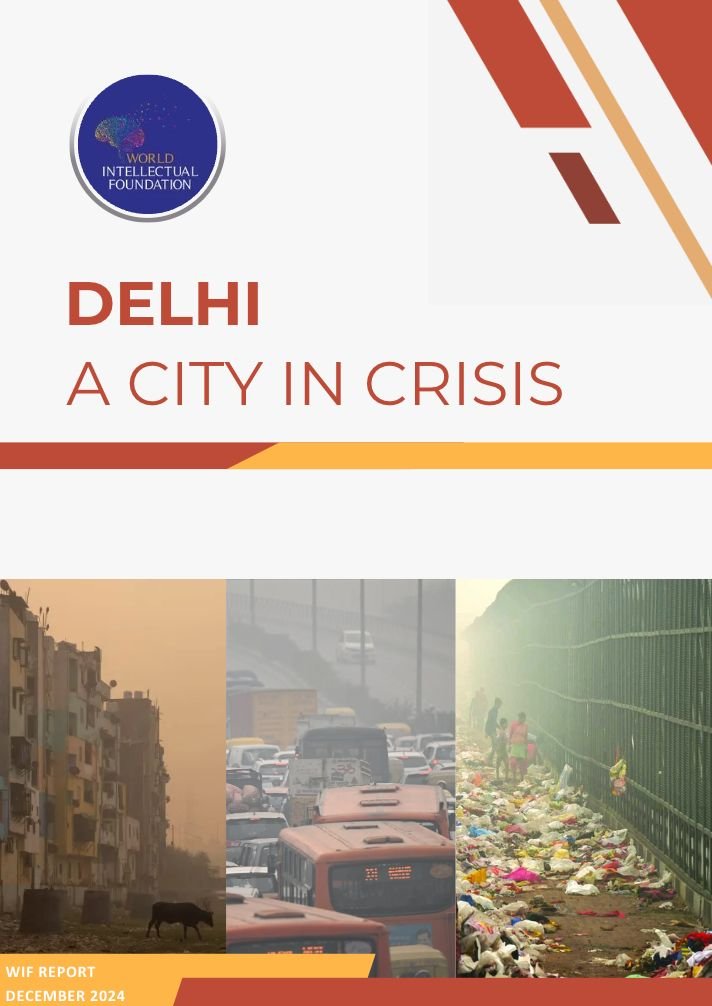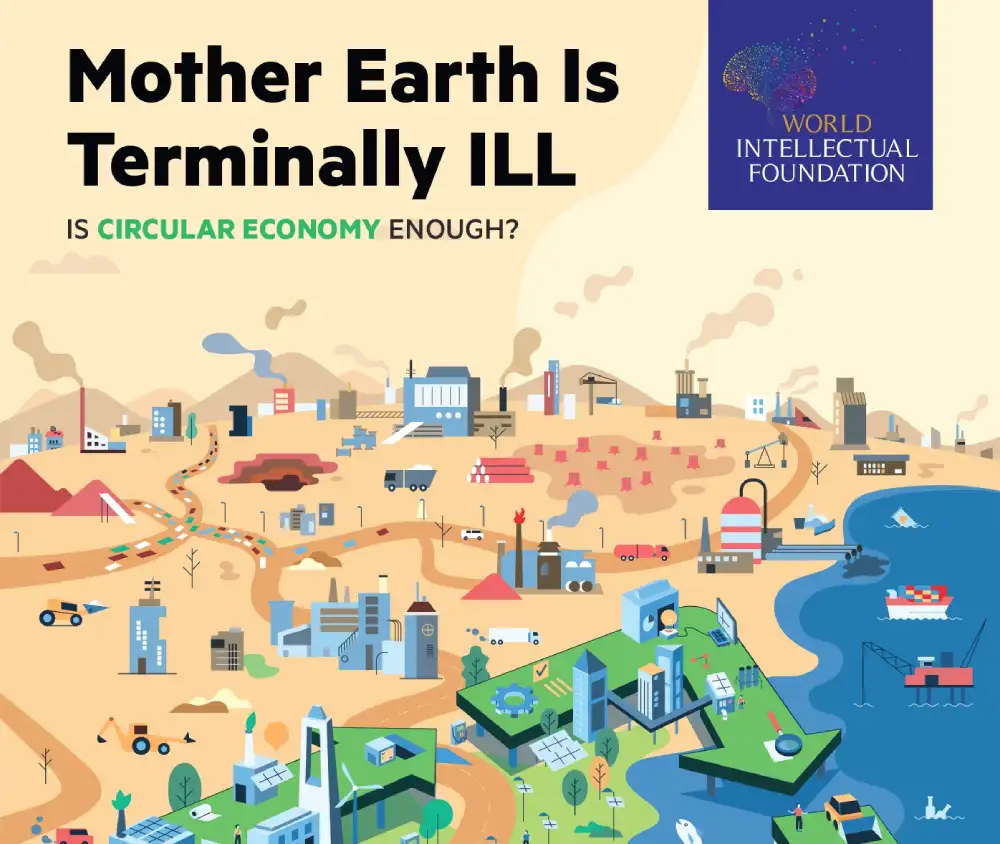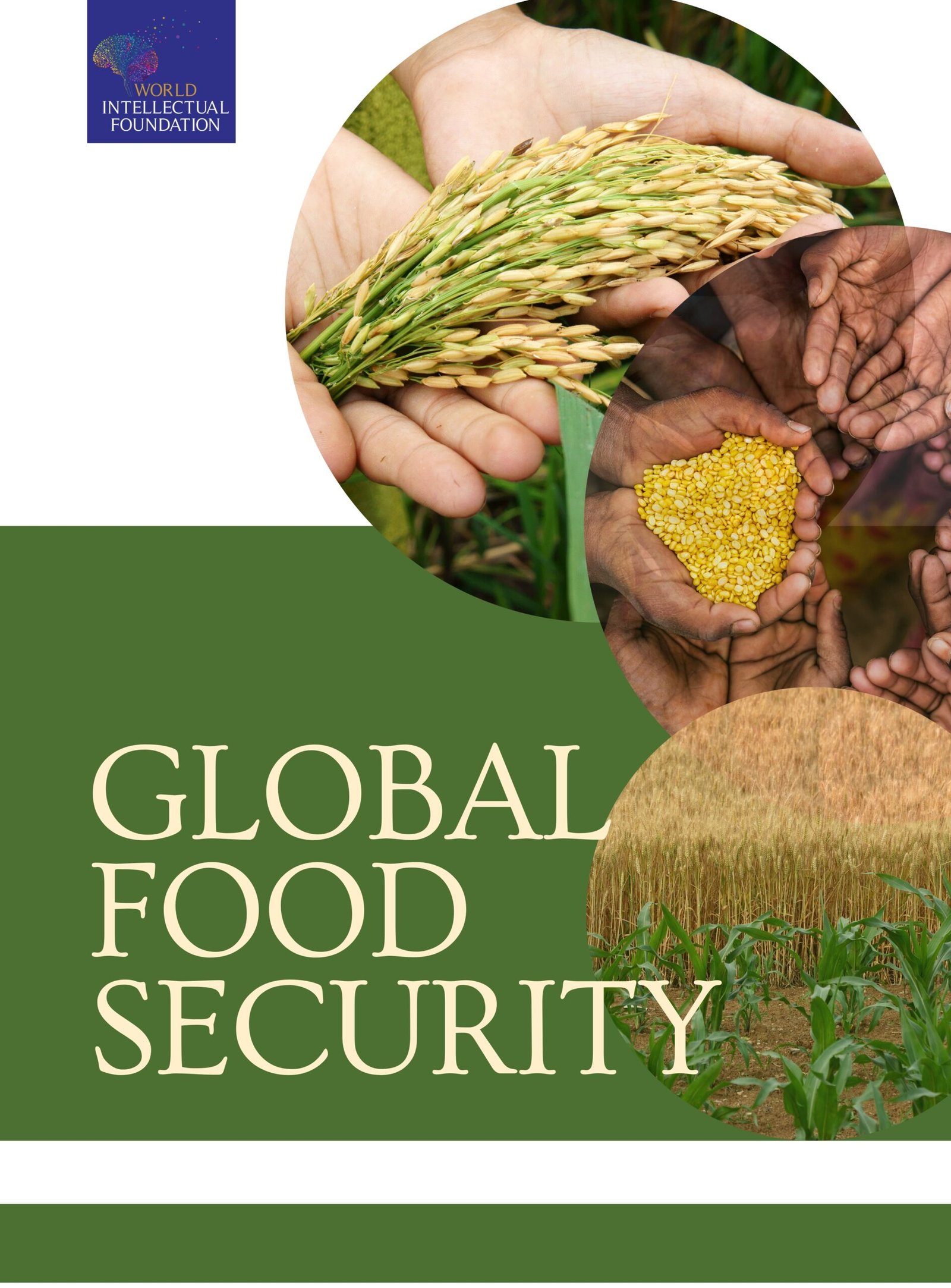
Delhi: A City in Crisis
Delhi, a city at a pivotal juncture, grapples with rapid urbanization, demographic shifts, and pressing environmental concerns. This comprehensive report delves into Delhi’s trajectory, tracing its historical evolution of administrative structures and analyzing its current governance framework. The chapters explore critical sectors, including health, education, environment, urban development, and transport, which are not only vital for the well-being of its citizens but also serve as indicators of the city’s governance dynamics.

Mother Earth is Terminally Ill: Is Circular Economy Enough?
Under the current model of consumption ‘take-make dispose’, energy, labor, and natural inputs are all termed as waste
right after consumption of the product. The resources are finitely
available and our demands are increasing exponentially. To
conserve the natural resources, we need to vertically retain their
value in the supply chain via innovations in technological, social,
and business operations – A Circular Economy Model.

Unlocking Human Potential
1. The Project has studied the factors maximising human potential. The existing approach solely focuses on Education, Health and Skills (Human Capital Index, World Bank), which are pseudo-tangible but give a narrow view of human potential. Beyond these factors, a whole gamut of intangibles plays a crucial role in unlocking real human potential. This is the study of Real Intangibles leveraging human potential in the context of achievements and success, irrespective of the availability of material factors. These intangibles are expandable and can be managed, and should become part of the Human Development Ecosystem.

Fortune Tellers or Fortune Sellers

Real Cost of Natural Disasters

Civilisation by Design

Future of Democracy & Media Literacy

Culture Policy for India: A Framework

Global Food Security

Kashmir: A Comprehensive Study
Authored by Dr. Rubina Mittal & Kunal Singh, our working paper delves deep into Kashmir’s intricate layers, shedding light on its natural beauty and socio-cultural and religious fabric that once made it a paradise. Central to the examination of the paper is abrogation of Article 370.

